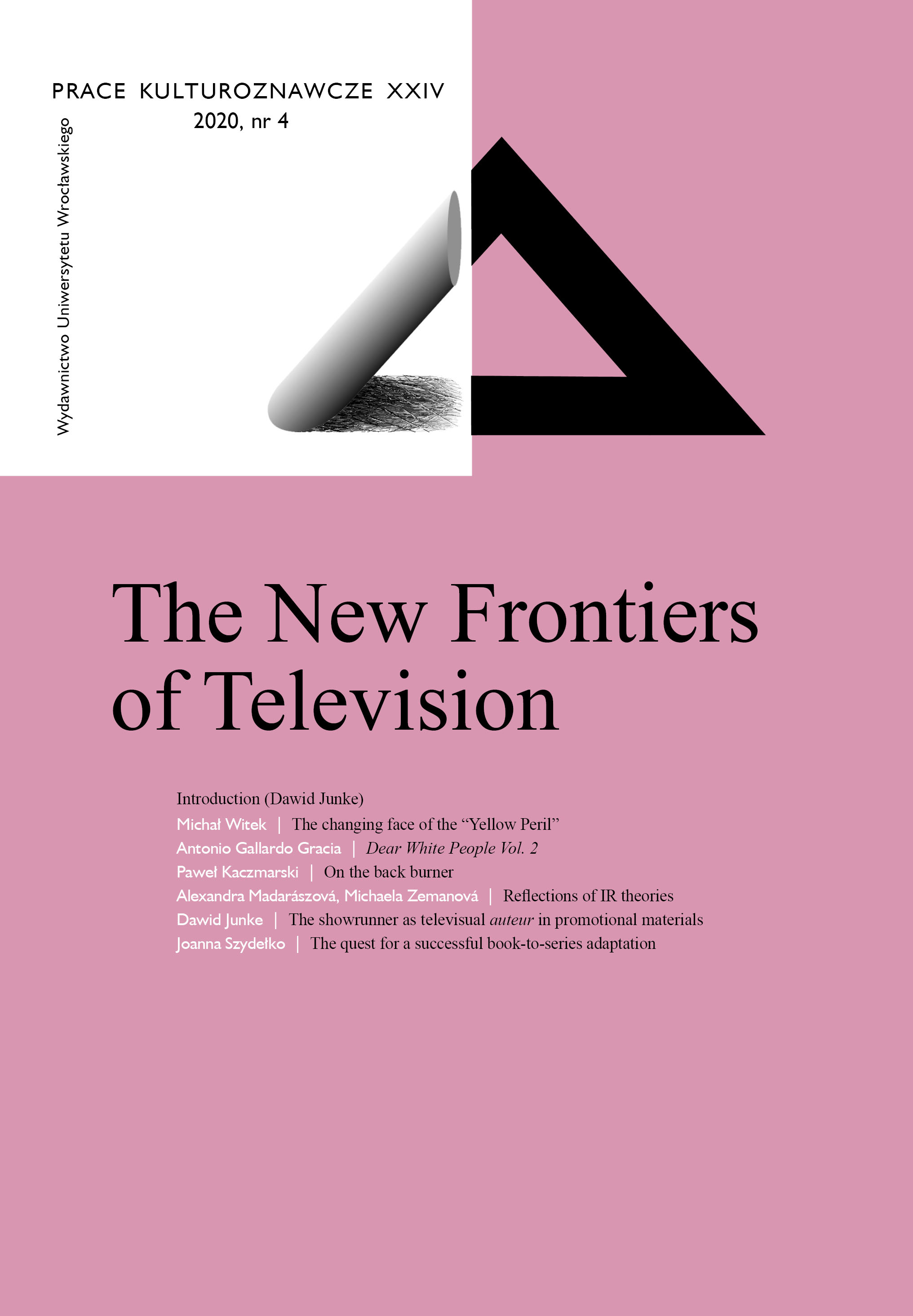

Articles

This article demonstrates how Netflix, the current leading SVOD provider, can be a platform of global cultural exchange, which not only provides entertainment, but also offers a critical reflection on international affairs to its subscribers. Despite the fact that most Netflix content is fictional, its distributed and produced films and TV series still portray various theoretical approaches of international relations. This claim is based on the premises of critical discourse, which see our reality in terms of the social context.
The aim of the article is to reveal what principles of main international relations theories (namely realism, liberalism, feminism, constructivism, or other critical theories) can Netflix subscribers find in the selected TV series. Using a visual qualitative analysis as a research method, the authors study five TV series, specifically Traitors (UK), 1983 (PL), Nobel (NOR), Pine Gap (AU) and Homeland (US). These TV series were selected with regard to their diverse origins of production, the topic’s central focus being politics, security or international relations, and their high ratings and numbers of viewers.
The analysis of each TV series is based on answering three questions, which are used in defining basic premises of the portrayed theories. The following questions are: What role does the state play as an actor in the international system? What is the dominant cultural identity of the society? What is the status of an individual in a country?
Processes of forming opinions and building images of social reality are influenced by the context in which the individual acts. As such, cultural exchange can influence the evolution of contemporary media society and thus affect viewers who are indirectly led to critical reflection. The results indicate that the global cultural exchange through the medium of mass entertainment is still driven mainly by traditional theoretical premises.